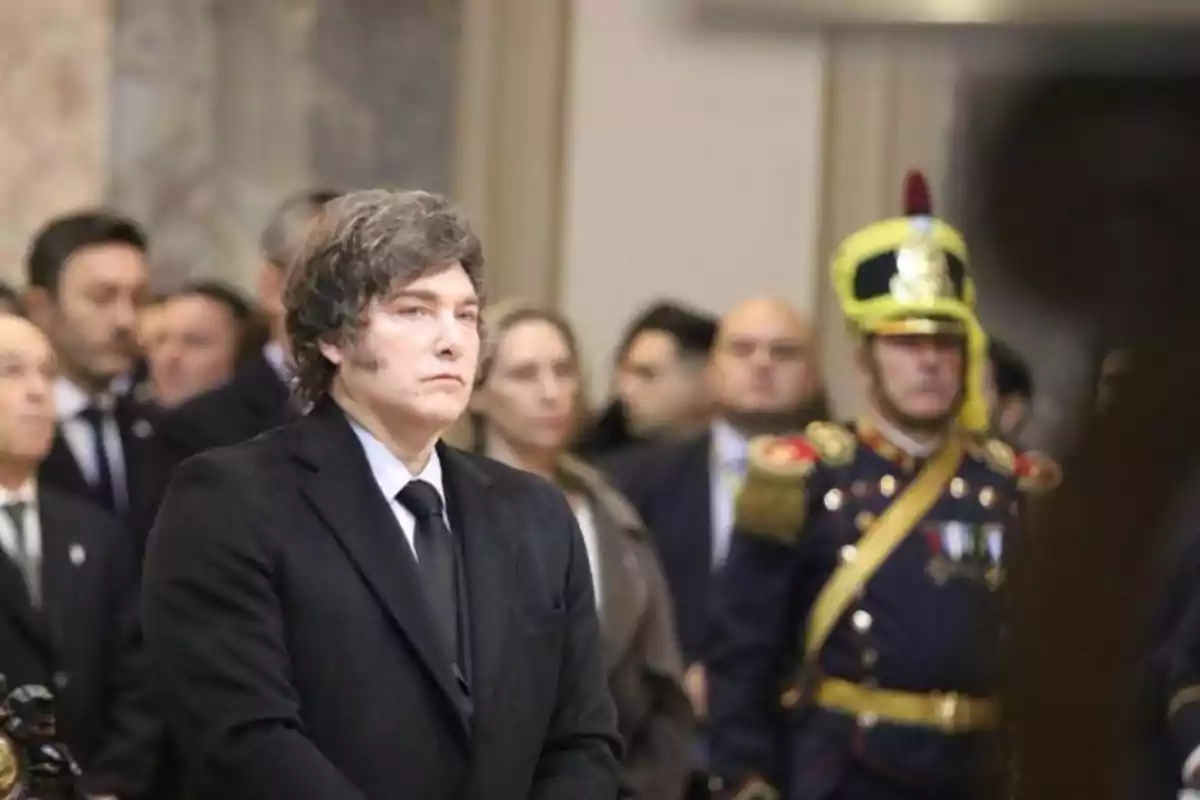
'Rome doesn't pay traitors': Javier Milei invokes the saying of the emperors
The President not only governs with determination, but also educates with history
"Rome doesn't pay traitors." With just four words, Javier Milei condensed centuries of political wisdom and exposed opportunists, mediocrities, and cowards. It wasn't an offhand remark.
It was a direct message to a sector of politics, to a part of the prebendary business community, and also to certain officials who put on the libertarian suit to ride the wave of change, but who never believed in the project.
The phrase has a glorious origin. In ancient Rome, when a traitor handed over his own leader or betrayed his loyalty to ingratiate himself with the Empire, the consuls replied with a firm sentence:
"Roma traditores non praemiat." Rome doesn't reward traitors. Rome doesn't pay traitors. Rome despises them.

It wasn't just a matter of moral principles. It was a strategic warning: if betrayal is rewarded, it is encouraged. If loyalty isn't honored, the very heart of the Republic is weakened. That's why, even when a traitor could be useful, he was eliminated without hesitation.
Milei, knowledgeable about history and classical culture—as an avid reader of philosophy, economics, and political theory—rescues that tradition to apply it in the most important cultural and political battle of the last 40 years. He doesn't do it in the abstract: he does it in a very concrete context.
The betrayal of those who disguise themselves as allies
Since taking office in December 2023, Milei has faced systematic attacks from the old political class, from media addicted to public spending, from feudal governors, from billionaire union leaders, and from international bureaucrats who can't stand to see a leader who doesn't pay them homage.
Perhaps the lowest blow didn't come from the declared opposition, but from those on the inside, those who claimed to be part of the project, but couldn't stand real change.

One of the most emblematic cases was that of the former Chief of Staff, Nicolás Posse, whose resignation was followed by leaks, rumors, and suspicious moves. His departure was an opportunity for traditional media to build a narrative of "internal crisis," but the presidential response left no room for doubt:
"Rome doesn't pay traitors."
It wasn't simply a bombastic phrase. It was the way Milei named the phenomenon of the false libertarian, the coffeehouse liberal, the one who joins the change to gain an advantage, but when it's time to fight, retreats, disappears, or worse: sabotages.
Loyalty to the project, not to positions
In Milei's logic, loyalty is to ideas, not to people. The project of liberty—which means blowing up the privileges of the caste, opening the economy, reducing public spending, restoring order, and returning dignity to the average Argentine—can't allow itself to be infiltrated by the usual opportunists.
That's why, when he detects that someone on the inside doesn't share that vision, or simply plays both sides, he acts without hesitation. He does so with the coldness of a Roman emperor. There is no room for sentimentality. There is no place for the lukewarm. There is no reward for traitors.
The message is also outward: whoever allies with Milei expecting perks or privileges is in the wrong place. There is no "rosca" here, no "positions for everyone," no "national unity government with Massa and the feudal governors."
There is a liberal revolution underway. Whoever doesn't join honestly, had better step aside. Or face the consequences.
A new political code
In a country where politics has been dominated by betrayal, flip-flopping, and unnatural alliances, for a president to openly say that he won't reward traitors is a cultural break. For the first time in decades, power is exercised with coherence.
Milei doesn't seek to be likable. He doesn't negotiate principles. He doesn't surrender the banner of liberty for a signature in Congress. To those who underestimated him, to those who thought they could use him as a springboard for their own benefit, he reminds them with a sentence that spans the centuries: "Rome doesn't pay traitors."
That phrase—rescued from the dust of history and thrown into the center of Argentine politics—resonates like a war cry. It is the mark of a leadership that isn't built on decadent consensus, but on truth, conviction, and action.
Because this time, the one who betrays doesn't return. The one who leaves isn't mourned. The one who sabotages is exposed.
Because finally, after so long, a Rome that doesn't pay traitors is being built in Argentina.
More posts: